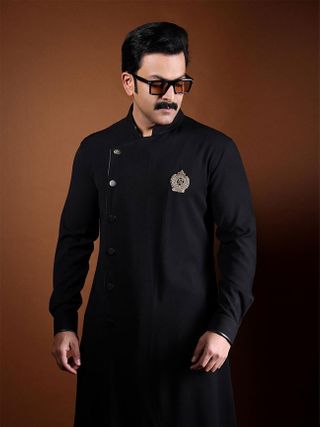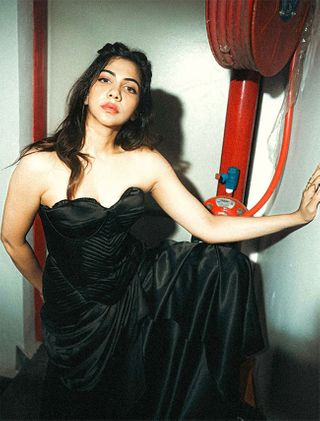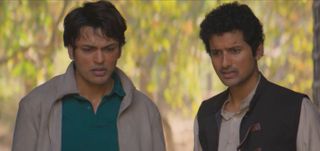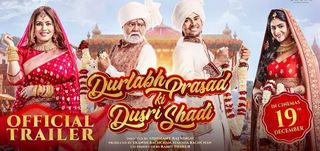Dil Vil Pyar Vyar Movie Review
It is said that a creation reflects its creator's personality. By that reckoning, director Anant Mahadevan is a noble-hearted soul.
His feature-film debut is redolent with the smell of tender romance, melody and gently breezy human relationships where emotions are tempered with discretion.
Mahadevan's film brings three eminently interesting protagonists and their romantic entanglements into a single range of vision, and links the three plots.
Outwardly urban and equipped with quips by dialogue writer Sanjiv Puri, Dil Vil Pyar Vyar needs a closer viewing for its refreshing revisionist attitude to the staid rules of romantic cinema.
Though the characters often get transported into an elaborately choreographed melodious dreamscape, they never forsake their inherent credibility.
Every character is painted in bold yet believable strokes - from the rich Hrithik (Jimmy Shergil) and his self-respecting girlfriend Jojo (Hrishita Bhatt), who prefers local trains to her suitor's limos - to the egoistic Kris (Madhavan), who can't bear to see his beloved wife Raksha (Namrata Shirodkar) become more successful, to the sombre Dev (Sanjay Suri) trying to exorcise his past and focus on the girl next door (Sonali Kulkarni).
Even the non-pivotal characters - Gulshan Grover as Jimmy's boisterous Sikh male-nanny and his bantering-partner Kiran Kumar as Jimmy's tycoon dad, or Hrishita's expansively effusive family of mom (Rita Bhaduri), dad (Tiku Talsania), aunt (Kamini Khanna) and neighbour (Mahbanoo Mody Kotwal) break through their stereotypical shell to blossom as memorably etched cameos.
Even unknown actor Joy Fernandes as the stationmaster who plays cupid between Jimmy and Hrishita gets us smiling.
The contemporary genre of easy aesthetic entertainment known as "feel-good" cinema seems to have been invented for this occasion.
Mahadevan's experience as a television director stands him in good stead.
Stage managing a film with at least 20 prominent actors often playing unrelated characters in mutually exclusive sub-plots seems like a case of biting more than one can possibly chew. But Mahadevan handles it with aplomb.
Other than its unique format, the most interesting component of the storytelling is its broad canvas. The characters crisscross through a well-ventilated environment. They are well groomed, photogenic and nattily clothed. But no one appears to be a mannequin. The director has chosen his actors well.
The sombre Sanjay and the ebullient Jimmy complement each other perfectly. In a character Rishi Kapoor would've comfortably slipped into 20 years ago, Jimmy undoubtedly plays the most endearing part. He also has some of the best lines.
Sanjay's sobriety lends a certain weight to the otherwise ebullient proceedings. His special talent as an introspective dreamer is well exploited.
Among the rest, special mention must be made of Gulshan Grover and the neglected Asrani, the latter cast against his buffoonish image after several decades.
But the film's main dramatic intensity emanates from the characters played by southern superstar Madhavan and Namrata.
In the most complex role of the film, Madhavan expresses myriad emotions from un-stinted love and loyalty to growing resentment and hostility towards a wife who's guilty only of becoming successful before him.
Slimmer and quicker on the emotional uptake than in his first Hindi film, Madhavan reminds us of Shashi Kapoor in a late 1960s' musical Abhinetri.
The lovely Namrata's eyes speak volumes. In one key confrontation sequence with Madhavan when she beseeches him not to throw her success in her face as an abuse, she reminds us of Meryl Streep.
Whether it's Namrata, Sanjay or Madhavan, this film gives them ample scope to prove their short changed star value.
Ironically the film's purported USP - the re-structured songs and music of R D Burman - is often a hindrance in the otherwise smooth and swift storytelling.



















